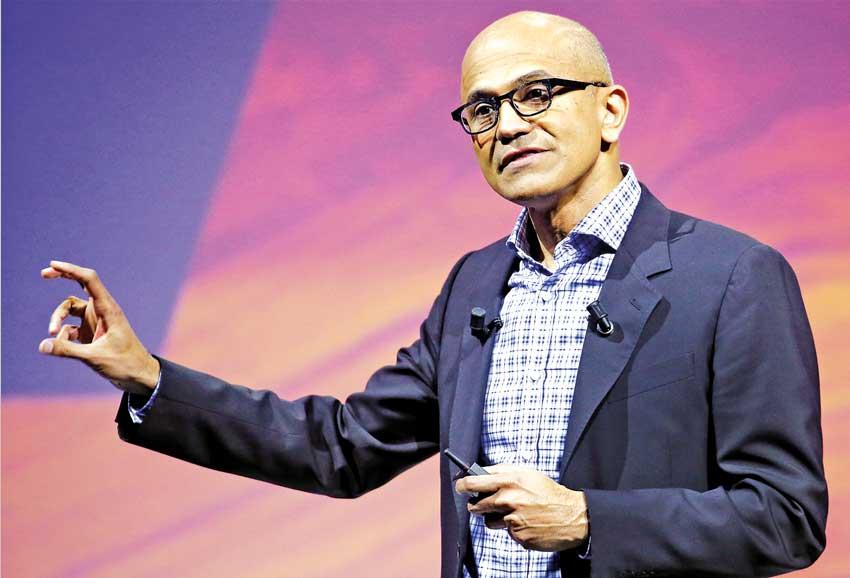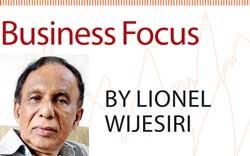17 Feb 2020 - {{hitsCtrl.values.hits}}

 Satya Nadella is an Indian-American business executive. He is Chief Executive Officer (CEO) of Microsoft, succeeding Steve Ballmer in 2014. Before becoming CEO, he was Executive Vice President of Microsoft’s cloud and enterprise group, responsible for building and running the company’s computing platforms.
Satya Nadella is an Indian-American business executive. He is Chief Executive Officer (CEO) of Microsoft, succeeding Steve Ballmer in 2014. Before becoming CEO, he was Executive Vice President of Microsoft’s cloud and enterprise group, responsible for building and running the company’s computing platforms.
Nadella was born in Hyderabad and his father was a civil servant of the Government of India.
After receiving his bachelor’s in electrical engineering from Mangalore University in 1988, Nadella travelled to the US to study for an M.S. in computer science at the University of Wisconsin–Milwaukee receiving his degree in 1990. Later, he received an MBA from the University of Chicago Booth School of Business.
Nadella worked at Sun Microsystems as a member of its technology staff prior to joining Microsoft in 1992. At Microsoft, Nadella has led major projects that included the company’s move to cloud computing and the development of one of the largest cloud infrastructures in the world.
Nadella worked as Senior Vice-President of Research and Development (R&D) for the Online Services Division and Vice President of the Microsoft Business Division. Later, he was made President of Microsoft’s US $ 19 billion Server and Tools Business and led a transformation of the company’s business and technology culture from client services to cloud infrastructure and services.
He has been credited for helping bring Microsoft’s database, Windows Server and developer tools to its Azure cloud. The revenue from Cloud Services grew to US $ 20.3 billion in June 2013, from US $ 16.6 billion when he took over in 2011. He received US $ 84.5 million in 2016 pay.
Nadella’s 2013 base salary was nearly US $ 700,000, for a total compensation, with stock bonuses, of US $ 17.6 million.
On February 4, 2014, Nadella was announced as the new CEO of Microsoft, the third Chief Executive in the company’s history, following Bill Gates and Steve Ballmer.
Nadella changed the company’s direction after becoming CEO. His tenure has emphasised openness to working with companies and technologies with which Microsoft also competes, including Apple Inc. and IBM. In contrast to previous Microsoft campaigns against the Linux operating system, Nadella proclaimed that ‘Microsoft ♥ Linux’ and in 2016, Microsoft joined the Linux Foundation as a Platinum member.
Under Nadella, Microsoft revised its mission statement to ‘empower every person and every organisation on the planet to achieve more’, in comparison to founder Bill Gates’ ‘a PC on every desk and in every home, running Microsoft software’. Nadella says that it is an enduring mission, rather than a temporal goal.
His key goal has been transforming Microsoft’s corporate culture into one that values continual learning and growth. He has cited the book ‘Mindset: The New Psychology of Success’ by Carol Dweck as inspiration for this philosophy around a ‘growth mindset’.
Nadella’s leadership of Microsoft included a series of high-profile acquisitions of other companies, to redirect Microsoft’s focus. His first major acquisition was of Mojang, a Swedish game company best known for the popular freeform computer building game Minecraft, in late 2014, for US $ 2.5 billion.
Minecraft was notably a cross-platform game, with versions running on Apple’s iOS mobile devices and the Sony PlayStation dedicated gaming console, as well as Microsoft’s Xbox.] He followed that by purchasing Xamarin and LinkedIn in 2016, then GitHub in 2018.
In the years since becoming CEO, Nadella is viewed as having done well, with Microsoft stock having tripled by September 2018, with a 27 percent annual growth rate.
In 2019, Nadella was named Financial Times (FT) Person of the Year: “Microsoft was at risk of technological irrelevance but the chief executive has presided over an era of stunning wealth creation.”
Nadella is an avid reader of poetry. He also nurses a passion for cricket, having played on his school team.
He is married and a father of three children. Nadella has authored a book titled ‘Hit Refresh’, which explores his life, his career in Microsoft and how he believes technology will shape the future.
What can we learn from Satya Nadella?
These lessons are based on his life experience.
‘It is important to have a learning culture that fosters true innovation’
Nadella is all about having a learning mindset. Commenting in an interview with Steve Clayton he said, “I love to learn. I get excited about new things. I buy more books than I read. I sign up for more online courses than I can actually finish … [I’m] just crazy ambitious in the 15 minutes I have in the morning. You know, I’m trying to listen to a neuroscience class or something.”
It’s all too easy, especially in business, to think that the time for learning is over but Nadella shows that successful business hinges on continual learning. This couldn’t be more relevant at Mercurius, where we aim to support each other in our learning wherever we can; whether that be recommending a book (I’m currently reading Eliyahu Goldratt’s ‘The Goal’ on a colleague recommendation) or taking five minutes to show someone a software feature they might have missed.
‘I’m grounded in our challenges…in fact, that is the adventure’
Nadella says he is well aware that life (and business) isn’t always plain sailing. In a competitive business environment, it’s tempting to hide away failures and show off achievements but it’s important to reflect upon and learn from challenges too. If nothing ever goes wrong, there’s no path for improvement, ‘you’ve got to make sure that if you make mistakes, you learn from [them]’.
‘We spend far too much time at work for it not to have deep meaning’
Nadella has no interest in working his employees like machines. Though results are important, he sees that a rewarding and enriching work life will in turn breed harder workers and better results.
In our lifetime it is estimated that we will spend more than 80,000 hours at work, with some of us spending much more than that at our desks. It seems ludicrous for that time not to count for something more meaningful than a salary cheque. That is why Nadella is continuously focused on inspiring his colleagues at Microsoft in the work they are doing.
‘The dream has always been ‘how can we transform how work is done?’
It’s no secret that the world of work is transforming before our eyes, with 65 percent of today’s students aiming for jobs that don’t yet exist.
“The notion that you went to school until you were 21 and then after that got into a profession and stayed in that same profession until you’re 80 is just not going to be true anymore because of the pace of technological change in that period,” Nadella commented in an interview.
He’s right. Business technologies such as Dynamics NAV and SharePoint will become increasingly vital to the way we work over the coming years so the question is not ‘how can we sell this product?’ but ‘how can we transform how work is done?’
‘We are pursuing artificial intelligence so that we can empower every person and every institution … to solve the most pressing problems of our society.’
Nadella recognises that technology is for everyone, not just those to whom it is readily available. It is about improving life and society for everyone with a democratising effect and doing something good for the global community. “The most exciting thing to me is beyond what we are doing ourselves, which is to take the same AI capability we have and make it available so everybody can use it,” he says.
“Take the state I was born in and the state I live in. Both are using essentially the same machine-learning algorithms to make high school dropout predictions. That to me is democratising AI.”
(Lionel Wijesiri is a retired company director with over 30 years’ experience in senior business management. Presently he is a freelance journalist and could be contacted on [email protected])
07 Jan 2025 7 hours ago
07 Jan 2025 7 hours ago
07 Jan 2025 8 hours ago
07 Jan 2025 07 Jan 2025
07 Jan 2025 07 Jan 2025